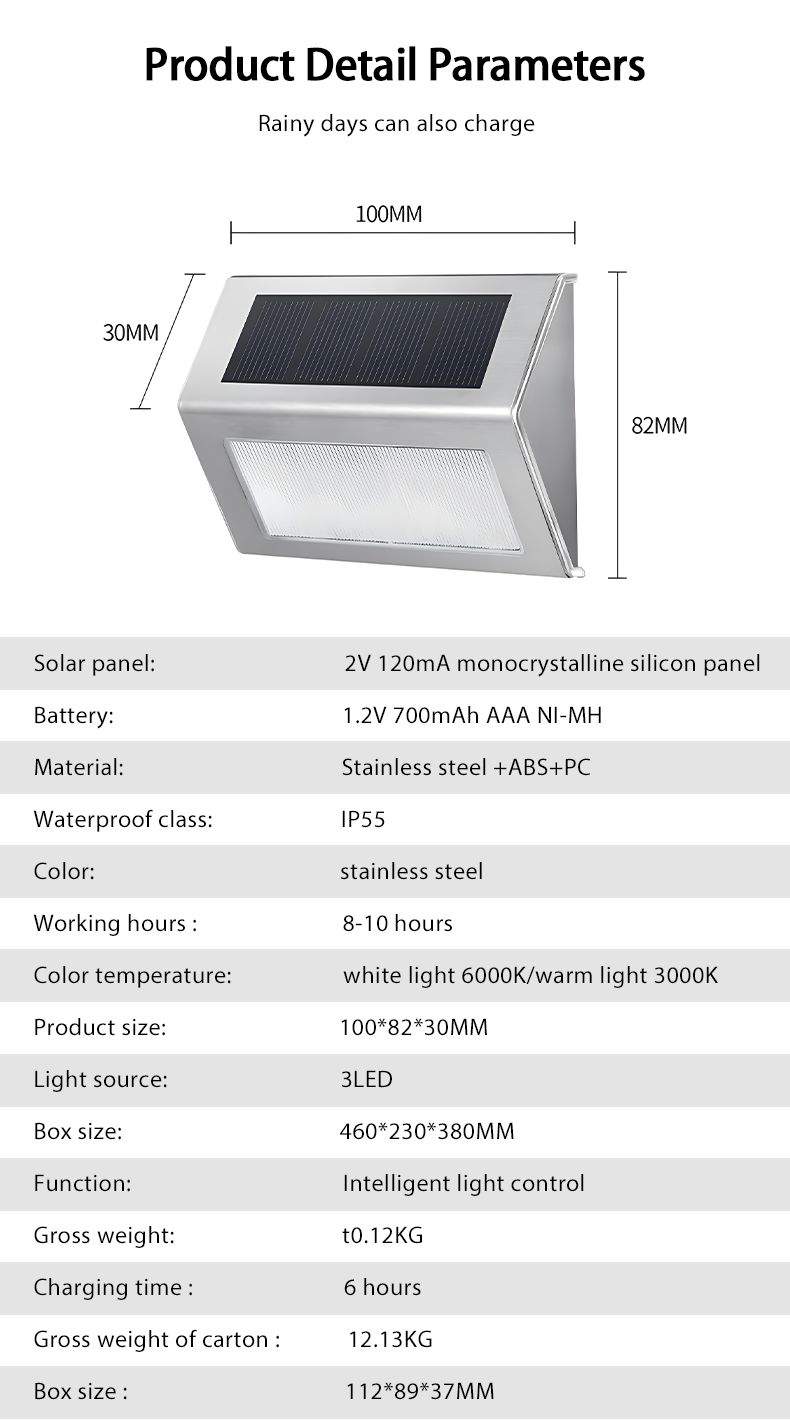Our expert, award-winning staff selects the products we cover and rigorously researches and tests our top picks. If you buy through our links, we may get a commission. Reviews ethics statement
The right light for the right room matters. Here are our top tips. Motion Sensor Solar Street Light

Light bulbs have an enormous, everyday impact on the way our homes look and feel, and with a flood of new energy efficient LED bulbs filling the lighting aisle , you've got more LED lighting options than ever. Plus, an LED light bulb can help you save on your energy bills and electricity. But how do you pick the best LED lights for the job? The trick is to think for a long time about how you typically put light to use in the different rooms in your home. That, more than anything, will dictate your lighting needs.
For instance, you might benefit from a super bright bulb in your favorite reading lamp, but prefer a gentler, more candle-like warm glow from the lamp at your bedside.
To that end, here are some room-specific tips to help you zero in on the right LED light for your lamps and living space. Where appropriate, I've also included links to buy light bulbs from our tests. I'll keep this updated as I test new products.
If you have high ceilings, you'll want floodlights that shine nice and bright in a single direction.
If you have rooms with high ceilings or recessed lighting -- an entryway, for instance, or maybe a staircase with overhead lights or a candelabra up above -- you'll want to prioritize brightness over softness in your light bulbs. After all, the higher up your light bulbs are, the brighter they'll need to be in order to light up the room.
The most common products for overhead lighting are BR30-shaped floodlights. The "BR" stands for "bulging reflector," and it means that the light inside the bulb sits above a reflective bowl, sort of like a little satellite dish. Screw a bulb like that up into your ceiling, and that bowl will catch all of the upward cast light, then reflect it back down and out the bottom, which bulges outward to produce the widest possible pool of bright light across the room. It's the same trick your car's headlights use to produce as much light output as possible out in front of you as you drive.
You've got plenty of energy saving BR30-shaped LED options in the lighting aisle. The most common choice among them are 65-watt replacement bulbs that typically put out about 650 lumens of light each. That's a good, average number, and fine for average-height ceilings with at least a few bulbs shining overhead. Among the ones I've tested, 65-watt replacement floodlights from Cree and Philips are the two I'd recommend. They're good values and they're highly energy efficient for the money (each draws less than 10 watts). These dimmable bulbs also work well with dimmer switches and -- most important for overhead lighting -- they're both nice and bright, each putting out comfortably more than 700 lumens. As of writing this, Home Depot has those Cree bulbs on sale in a two-pack for less than $6 -- they're the ones I'd go with in my own home if it were me buying.
If your ceilings are higher than average, or if you've got fewer bulbs shining overhead than you'd like, then look for 100-watt bulb replacement BR30 LEDs that bump the brightness up even further. Cree makes them, and Home Depot is selling them for a little over $10 each, which is a pretty good deal.
Some rooms serve just one or two basic functions, but other rooms get used in all sorts of ways. For instance, you might use your living room for watching TV, reading books, playing board games with the kids, or any other number of activities. Rooms like that can really benefit from quality lights that can adapt to whatever's going on.
The old-fashioned way to do it is to use a mix of different lamps and fixtures that serve different purposes -- a reading lamp beside your favorite armchair, overhead lights for board game night, everything off when you're watching a movie, and so on. That's all well and good, but it limits you to a binary, "on/off" lighting mentality.
The better approach? Give yourself a full spectrum of lighting possibilities by making sure all of those lights are dimmable.
Upgrading your light switches to dimmer switches is one way to do it (and not nearly as intimidating as you might be thinking if you've never switched one out before). There are also smart plugs from brands like Lutron that'll let you dim your fixtures and lamps up and down. The easiest way, however, is simply to replace your bulbs with dimmable smart bulbs . It's a great time to do it -- costs have come way down in recent years, and the advent of voice controls has given people a quick, easy way to jump to whatever dimmer setting they like, whenever they like.
Best of all, just about every smart bulb on the market is dimmable without flickering or buzzing, eliminating a common headache that comes with an in-wall dimmer switch. That also makes smart bulbs quality picks for bedrooms, where strong dimming performance and things like prescheduled wake-up fades can do wonders for your mood in the morning.
Philips Hue has an expensive reputation, but its dimmable white light LED smart bulbs only cost $15 each, and you can get a starter kit with three bulbs and the Philips Hue Bridge that acts as the brain of the system for just $60. From there, you can pick up an additional bulb whenever they go on sale, gradually building out your network of connected bulbs.
We like the Philips Hue smart light bulb because of the well-developed app, the strong variety of bulbs, fixtures and accessories you can add to your setup, and the good track record of support. With the Hue Bridge calling the shots, your bulbs will work with Siri, Alexa and the Google Assistant for quick, voice-activated lighting changes. Next time you're watching a movie and want the lights dimmed down low, but not totally off, you can just tell your assistant of choice to "dim the living room lights to 5%."
On the left, a bowl of M&Ms lit by a standard GE LED. On the right, the same bowl lit by a GE Reveal LED, which does a much better job at making colors look vivid and true.
I'm not talking about color-changing smart lights (though if you want to jazz your home up with them, don't let me stop you ). No, I'm talking about the colors that are already in your home -- artwork, furniture, the clothes in your closet, the fruits and veggies in your kitchen , you name it.
Whatever it is, if it's colorful, then it'll benefit from light bulbs with high color rendering scores -- bulbs that boost the color temperature and help colors look their best. This isn't always the easiest thing to shop for, as manufacturers aren't required to list their color rendering scores on the packaging, like they are with brightness and efficiency specs. Some bulbs that do claim to emit great colors are actually just so-so.
My LED lighting tip: Just stick with GE Reveal bulbs, because after about six years of reviewing light bulbs for CNET, I've yet to test one that hasn't delivered on its promise of better-looking colors. That includes standard 60-watt replacement LEDs, floodlights, weird-looking stick-shaped LEDs, dimmable LED bulbs and more. A 4-pack of regular, A-shaped Reveal bulbs (linked below) currently goes for $17 at Lowe's.
They tend to cost slightly more per bulb, and most are a little less bright than the average LED light because they filter out some of excess yellow light for a better color temperature -- but those compromises are worth it if you're using them for accent lighting or to light up the spots in your home where you'll appreciate accurate, better-looking colors day in and day out.

Solar Outdoor Lights And that's really the point -- despite regularly taking them for granted, we use light bulbs more than just about anything else in our homes. They're often the first things we turn on in the morning and the last things we turn off before going to bed. So don't let the lighting aisle overwhelm you -- whether you choose an energy saving light bulb, a CFL bulb, a smart LED bulb or even a regular incandescent light bulb, finding the right light for each room in your house is well worth it, and much easier than you might think.
